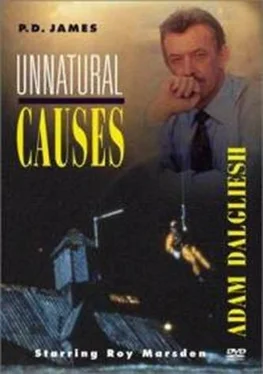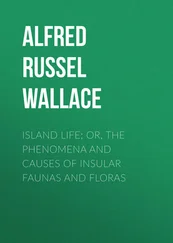P James - Unnatural Causes
Здесь есть возможность читать онлайн «P James - Unnatural Causes» весь текст электронной книги совершенно бесплатно (целиком полную версию без сокращений). В некоторых случаях можно слушать аудио, скачать через торрент в формате fb2 и присутствует краткое содержание. Жанр: Детектив, на английском языке. Описание произведения, (предисловие) а так же отзывы посетителей доступны на портале библиотеки ЛибКат.
- Название:Unnatural Causes
- Автор:
- Жанр:
- Год:неизвестен
- ISBN:нет данных
- Рейтинг книги:4 / 5. Голосов: 1
-
Избранное:Добавить в избранное
- Отзывы:
-
Ваша оценка:
- 80
- 1
- 2
- 3
- 4
- 5
Unnatural Causes: краткое содержание, описание и аннотация
Предлагаем к чтению аннотацию, описание, краткое содержание или предисловие (зависит от того, что написал сам автор книги «Unnatural Causes»). Если вы не нашли необходимую информацию о книге — напишите в комментариях, мы постараемся отыскать её.
Unnatural Causes — читать онлайн бесплатно полную книгу (весь текст) целиком
Ниже представлен текст книги, разбитый по страницам. Система сохранения места последней прочитанной страницы, позволяет с удобством читать онлайн бесплатно книгу «Unnatural Causes», без необходимости каждый раз заново искать на чём Вы остановились. Поставьте закладку, и сможете в любой момент перейти на страницу, на которой закончили чтение.
Интервал:
Закладка:
Remember me, you said, at Blythburgh
As if you were not always in my mind
And there could be an art to bend more sur
A heart already wholly you inclined .
Of you, the you enchanted mind bereave
More clearly back your image to receive,
And in this unencumbered holy plac
Recall again an unforgotten grace
I you possessed must needs remember still
At Blythburgh my love, or where you will .
This metaphysical conceit, like most minor verse, comes to you with an ulterior motive. I don’t need to tell you what. I won’t say that I wish you were here. But I wish I were with you . This place is full of death and disagreeableness and I don’t know which is worse. But God and the Suffolk CID willing I shall be back in London by Friday evening. It would be good to know that you might be at Queenhithe .
Writing this note must have taken longer than he thought for his aunt’s knock on the door surprised him. She said: “They’re going, Adam. I don’t know whether you feel the need to say goodnight.”
He went down with her. They were indeed going, and he was surprised to see that the clock said twenty past eleven. No one spoke to him and they seemed as unconcerned at his reappearance as they had been at his going. The fire had been let die and was now little more than a heap of white ash. Bryce was helping Celia Calthrop into her coat and Dalgliesh heard her say: “It’s naughty of us to be so late. And I’ve got to be up so early. Sylvia phoned me from Seton House late this afternoon and asked me to drive her to the Green Man first thing tomorrow. There’s something urgent she has to tell Reckless.”
Latham, already at the door, spun round. “What does she mean-something urgent to tell him?”
Miss Calthrop shrugged. “My dear Oliver, how can I know? She more or less hinted that she knew something about Digby but I imagine it’s just Sylvia trying to make herself important. You know how she is. But one can hardly refuse to take her.”
“But didn’t she give you any idea what it’s all about?” Latham was sharply insistent.
“No, she didn’t. And I certainly wasn’t going to give her the satisfaction of asking. And I’m not going to hurry myself. If this wind continues I shall be lucky to get much sleep tonight.”
Latham looked as if he would like to have questioned further but Celia had already pushed past him. Murmuring a final and abstracted goodnight to his hostess, he followed the others into the storm. A few minutes later, straining his ears against the howling of the wind, Dalgliesh heard the slamming of doors and the faint row of the departing cars.
4
The wind woke Dalgliesh just before three o’clock. As he drifted into consciousness he heard the three chimes of the sitting-room clock and his first waking thought was a drowsy wonder that so sweet and uninsistent a sound could strike so clearly through the bedlam of the night. He lay awake and listened. Drowsiness gave way to pleasure, then to a faint excitement. He had always enjoyed a storm at Monksmere. The pleasure was familiar and predictable: the frisson of danger; the illusion of being poised on the very edge of chaos; the contrast between the familiar comfort of his bed and the violence of the night. He wasn’t worried. Pentlands had stood for four hundred years against the Suffolk seas. It would stand tonight. The sounds he was hearing now hadn’t changed with the years. For over four hundred years men had lain awake in this room and listened to the sea. One storm was very like another, all impossible to describe except in clichés. He lay still and listened to the familiar noises: the wind hurling itself against the walls like a demented animal; the perpetual background surge of the sea; the hiss of rain heard as the gusts abated; and, in the momentary calm, the trickle of falling shingle from roof and window sills. At about twenty to four the storm seemed to be dying away. There was one moment of complete peace in which Dalgliesh could hear his own breathing. Shortly afterwards he must have drifted again into sleep.
Suddenly he woke again to a gust so violent that the cottage seemed to rock, the sea roared as if it were about to break over the roof. He had never known anything like this before, even at Monksmere. It was impossible to sleep through such fury. He had an uncomfortable urge to be up and dressed.
He switched on his bedside lamp and, at that moment, his aunt appeared in the doorway, close-buttoned into her old plaid dressing gown and with one heavy plait of hair hanging over her shoulder. She said: “Justin is here. He thinks we ought to see if Sylvia Kedge is all right. We may have to get her out of that cottage. He says that the sea’s coming in fast.”
Dalgliesh reached for his clothes. “How did he get here? I didn’t hear him.”
“Well, that isn’t surprising, is it? You were probably asleep. He walked. He says we can’t get the car to the road because of flooding. So it looks as if we’ll have to go across the headland. He tried to telephone the coast guards but the line is down.”
She disappeared and Dalgliesh hurriedly pulled on his clothes, cursing gently. It was one thing to lie in warm security analysing the noises of the storm; it was another to fight one’s way over the highest point of the headland on an adventure which could appeal only to the young, the energetic or the incurably romantic.
He felt unreasonably irritated with Sylvia Kedge as if she were somehow responsible for her own danger. Surely to God the girl knew whether the cottage was safe in a storm! It might, of course, be that Bryce was fussing unnecessarily. If Tanner’s Cottage had stood through the 1953 flood disaster it would stand tonight. But the girl was a cripple. It was right to make sure. All the same it was hardly an enterprise to be welcomed. At best it would be uncomfortable, exhausting and embarrassing. At worst, especially with Bryce in tow, it had all the elements of farce.
His aunt was already in the sitting room when he went down. She was packing a thermos and mugs into a rucksack and was fully dressed. She must have been wearing most of her clothes under her dressing gown when she called him. It struck Dalgliesh that Bryce’s call was not altogether unexpected and that Sylvia Kedge’s danger might be more real than he knew. Bryce, wearing a heavy oilskin which reached to his ankles topped with an immense sou’wester, stood dripping and glistening in the middle of the room, like an animated advertisement for sardines. He was clutching a coil of heavy rope with every appearance of knowing what to do with it and had the air of a man dedicated to action.
He said: “If there’s any swimming to be done, my dear Adam, one must leave it to you. One has one’s asthma, alas.” He gave Dalgliesh a sly, elliptical glance and added deprecatingly, “Also, one cannot swim.”
“Of course,” said Dalgliesh faintly. Did Bryce seriously believe that anyone could swim on a night like this? But there was no point in arguing. Dalgliesh felt like a man committed to an enterprise which he knows to be folly but which he can’t summon up the energy to resist.
Bryce went on: “I didn’t call for Celia or Liz. No point in having a crowd. Besides, the lane is flooded so they wouldn’t be able to get through. But I did try to get Latham. However, he wasn’t at home. So we must just manage on our own.” He was apparently unconcerned at Latham’s absence. Dalgliesh bit back his questions. There was enough on hand without taking on fresh problems. But what on earth could Latham be doing on a night like this? Had the whole of Monksmere gone mad?
Once they had climbed out of the shelter of the lane and had mounted the headland there was energy for nothing but the effort of moving forward and Dalgliesh let the problem of Latham drop from his mind. It was impossible to walk upright and they clawed onwards like crouched beasts until aching thighs and stomach muscles forced them to kneel, palms pressed against the turf, to recover breath and energy. But the night was warmer than Dalgliesh had expected and the rain, less heavy now, dried softly on their faces. From time to time they gained the shelter of scrub and bushes and, released from the weight of the wind, trod lightly as disembodied spirits through the warm, green-smelling darkness.
Читать дальшеИнтервал:
Закладка:
Похожие книги на «Unnatural Causes»
Представляем Вашему вниманию похожие книги на «Unnatural Causes» списком для выбора. Мы отобрали схожую по названию и смыслу литературу в надежде предоставить читателям больше вариантов отыскать новые, интересные, ещё непрочитанные произведения.
Обсуждение, отзывы о книге «Unnatural Causes» и просто собственные мнения читателей. Оставьте ваши комментарии, напишите, что Вы думаете о произведении, его смысле или главных героях. Укажите что конкретно понравилось, а что нет, и почему Вы так считаете.












